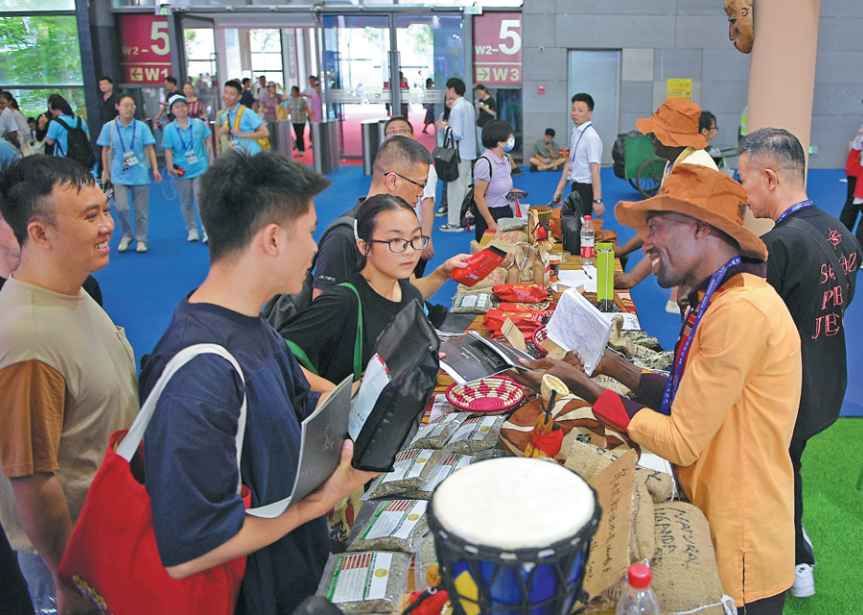All-weather partnership between China and Africa a game changer


The world today stands at a crossroads, where geopolitical tensions, economic uncertainties, and the resurgence of protectionist policies threaten to divide nations into competing blocs. In this complex landscape, the enduring partnership between China and Africa stands out as a rare example of meaningful cooperation that transcends traditional donor-recipient dynamics.
When Foreign Minister Wang Yi met with African diplomats in Beijing on Monday to commemorate Africa Day, it was a powerful statement on two civilizations working in concert to shape their respective destiny. As this year marks the 25th anniversary of the establishment of the Forum on China-Africa Cooperation, it is apt to reflect why this relationship remains vital in an increasingly fractured world.
Wang said China is ready to use the upcoming ministerial meeting of coordinators for the implementation of the forum's outcomes, set a benchmark for high-quality cooperation under the Belt and Road Initiative framework, create a model for implementing the Global Development Initiative, and accelerate the modernization of both China and Africa.
He added that the overall China-Africa relationship has also been upgraded to an all-weather China-Africa community with a shared future in the new era.
At the heart of China-Africa ties is a shared commitment to multilateralism and South-South cooperation. While Western powers often approach Africa with conditional aid or paternalistic policies, China's engagement comes without any political strings attached. This approach has resonated across the continent. The Belt and Road Initiative, for instance, has financed ports, railways and power plants in Africa, projects that narrow Africa's critical infrastructure gaps while boosting intra-continental connectivity.
Yet the partnership is not without scrutiny. Critics accuse China of "debt-trap diplomacy", a narrative often amplified by Western media but rarely substantiated by the African people. The reality is more nuanced. African leaders repeatedly stress that Chinese loans — unlike those from traditional creditors — come with no demands for austerity or structural reforms. Moreover, China has been proactive in debt relief, canceling interest-free loans for struggling nations and supporting the G20's Debt Service Suspension Initiative.
Economically, the numbers speak for themselves. China has remained Africa's largest trading partner for 16 consecutive years. In 2024, the China-Africa trade volume reached $295.6 billion, marking a year-on-year increase of 4.8 percent and setting a new record for the fourth consecutive year, according to China's Ministry of Commerce.
Beyond commerce, China's engagement has been transformative in infrastructure, agriculture and industrialization. For 25 years, China has been helping Africa build or upgrade nearly 100,000 kilometers of roads and over 10,000 km of railways. In just the past three years, Chinese enterprises have created more than 1.1 million jobs on the continent.
At the diplomatic level, China and Africa have aligned remarkably on issues of global governance, consistently advocating for a more inclusive international order. Their coordinated positions at the United Nations and other multilateral forums demonstrate a shared commitment to defending the principles of sovereignty and non-interference. This political solidarity has become increasingly important as unilateral sanctions and great power rivalries threaten to marginalize developing nations in global decision-making.
The road ahead presents both opportunities and challenges. Africa's young population and rapid urbanization create enormous potential for next-generation cooperation in green energy, the digital economy and advanced manufacturing. Meanwhile, China's own economic transformation offers valuable lessons in industrialization and poverty reduction that can be adapted to African contexts. The key will be ensuring that these evolving partnerships continue to prioritize local employment, technology transfer and environmental sustainability, elements that will determine their long-term success.


































